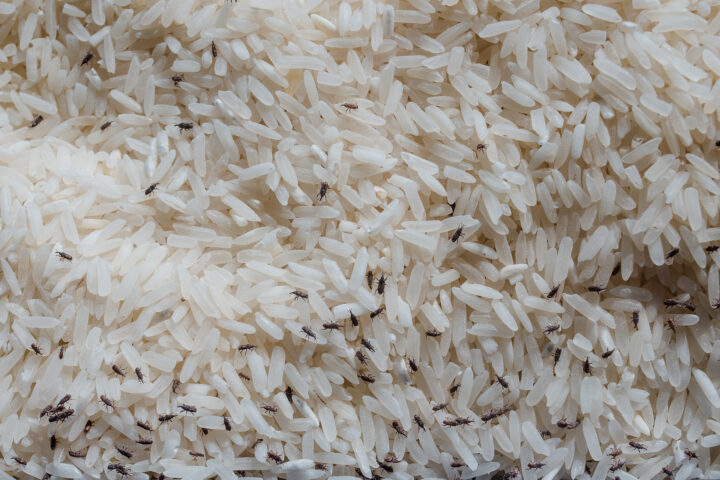
Dramatic drop in yields without crop protection
Food security is one of the greatest global challenges of the 21st century. The world's population is growing and the growing conditions for agriculture are deteriorating due to climate change.
Saturday, November 2, 2019
The most important points in brief:
- Global agriculture must become significantly more productive in order to be able to feed the world's growing population in the future.
- At the same time, growing conditions are becoming increasingly difficult due to climate change.
- An analysis by the European Parliamentary Research Service shows that the challenge cannot be met without pesticides.
According to a recent study by the EU Parliament, without the use of crop protection products, there will be a dramatic drop in yields worldwide. They are estimated at minus 62 per cent for rice, minus 60 per cent for potatoes, minus 55 per cent for maize and minus 48 per cent for soya beans. The drop in yields when not using pesticides varies depending on the region and type of production. The EU Parliament's study entitled ‘Farming without plant protection products’ (2019) summarises the consequences of not using plant protection products. The main cause of yield losses are weeds, which reduce yields.
Climate change increases yield losses
Another major challenge is climate change. Global warming exacerbates the already considerable yield losses without pesticides. The use of pesticides will increase in the future: «It is expected that climate change will result in temperature rise of 1.5-2 °C and in more irregular precipitation with more rainfall in some regions ... global yield losses are projected by 10 to 25% per degree of global mean surface warming.» Pesticides include herbicides, fungicides and insecticides. It was the use of pesticides that made the green revolution possible in the first place. Since 1960, agricultural yields have increased by a factor of 2.5. What is rarely discussed in this context: The increase in productivity through the use of pesticides slows down land consumption. According to the FAO, without the huge increase in productivity, more than 370 million hectares of additional land would have had to be utilised between 1975 and 2017. This area corresponds to around 60% of the Amazon rainforest.
Unproductive agriculture jeopardises biodiversity
Without the increase in productivity of pesticides and other agricultural innovations, land consumption in agriculture would have risen massively. From a global perspective, abandoning crop protection would therefore be bad news for biodiversity. ‘Land use for agriculture is inevitably related to loss of biodiversity. Management techniques such as use of PPPs (plant protection products) have by definition a negative impact on biodiversity, but this loss is by far surpassed by the higher land use in extensive production systems.’ In other words, intensive and productive agriculture that limits land use contributes more to biodiversity than unproductive agriculture with increasing land use. Agriculture without pesticides is less productive. By 2050, the world population will increase to around 9.5 billion. inhabitants. To feed the world's population, agriculture worldwide will have to produce around 60 per cent more by 2050. This is only possible with modern crop protection. Without an increase in productivity, more land will be needed - forests will have to be cut down. This has fatal consequences for biodiversity and the climate.

Unproductive agriculture is unethical
Swiss agriculture must also become around 30 per cent more productive and make a contribution to the future supply of the world's population on our good soils. Even greater imports would be unethical. Without crop protection, local food would become more expensive, production more costly and the quantity available smaller. According to the study, purely organic farming produces around 25 per cent lower yields. Lower production leads to higher food prices. At the same time, land requirements increase. The pressure on biodiversity increases. The climate balance deteriorates. In view of the global challenges, unproductive agriculture that consumes more land and produces less is unethical.
The future lies in «smart» agriculture
Smart agriculture utilises the results and innovations of research and uses the latest technology. This type of agriculture utilises the new possibilities of breeding resistant varieties (Crispr Cas), makes cultivation decisions on a scientific basis and makes use of precise technical aids (e.g. drones). In this way, the use of pesticides can be significantly reduced in the future and the efficiency and sustainability of agriculture can be further increased.
Sources
Related articles

Grain beetle eats its way through Swiss grain stores
The grain beetle is spreading in Swiss grain stores. Introduced via international trade, it threatens harvests and impairs food quality.

New problem: soft bugs, native pests discover fruit and vegetables
Soft bugs are spreading at lightning speed in fields and greenhouses in southern Germany. These pests are destroying fruit and vegetables and pushing agriculture to its limits. Effective plant protection products must be found urgently to safeguard harvests.

Three times more Asian hornets – biocides needed
The Asian hornet has been a threat to the native honeybee for several years. The situation continues to worsen. As new figures show, there were almost 4,000 sightings last year – a threefold increase in the number of Asian hornets. The pest is attacking biodiversity. Politicians are also alarmed.

Is the industry exporting banned pesticides?
NGOs and the media repeatedly report on Swiss manufacturers of plant protection products who export pesticides that are banned in Switzerland. They claim that weak regulations in the importing countries are being deliberately exploited. However, this is not the case. Swiss manufacturers adhere to strict international standards when exporting plant protection products. Since approvals are also tailored to agronomic needs, the crops grown and the market, regulation from Switzerland makes no sense.

